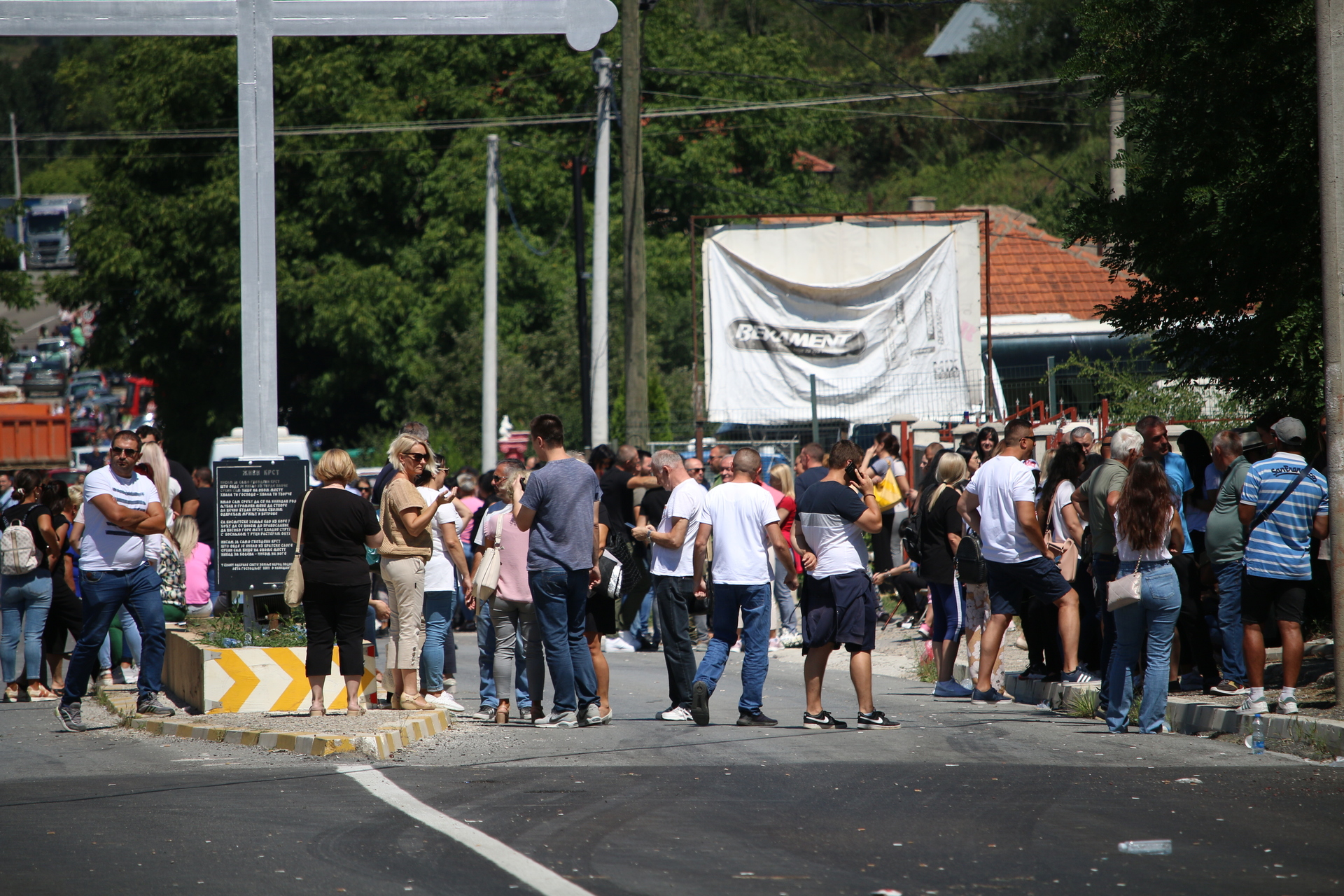- What is behind the next round of tension in Kosovo, provoked by Pristina's attempt to cancel the Serbian documents?
- If we want to understand the Kosovo problem, then we must not forget that we are talking about a single long-term process.
It lasts 150 years, from the moment the Ottoman Empire left the Balkans, and the British Empire began to pursue a policy aimed at alienating these territories, primarily Orthodox Serbs, from Russia.
Therefore, we cannot consider a single provocation in Kosovo and Metohija outside this main geopolitical vector.
I remember dozens of such provocations, all of them were carried out within the framework of this vector.
Serb protest in the city of Kosovska Mitrovica in Kosovo, August 1
Gettyimages.ru
© Erkin Keci/Anadolu Agency
- On whom does Pristina rely in its "initiatives" - on Albania or NATO countries, including the United States?
- Albania was created in 1912 as part of the British Balkan policy, so we cannot talk about any support by Albania for the unrecognized Republic of Kosovo, because we are talking about a single program, a single sponsor and a single project.
Albania can provide some logistical assistance, but, in fact, does not affect the processes in Kosovo.
This is done by significantly more powerful players than Albania.
Pristina, the Albanian authorities in Kosovo and Metohija act exclusively on the orders of the United States.
They understand very well that without the West it is impossible for them to survive in the Balkans, let alone expand.
- Is there any connection between the current aggravation in Kosovo and the special operation of the RF Armed Forces in Ukraine?
- Initially, this situation has no connection with the special operation in Ukraine, since there have been dozens of such provocations over the past 23 years.
But now this provocation has coincided with the events in Ukraine and Donbass, so it can no longer be considered separately, especially after the timely reaction of Russian diplomacy.
Therefore, American diplomacy in Pristina reacted urgently in order to prevent further escalation.
This is the only positive aspect in this case.
- What is the likelihood of NATO intervention in the situation?
“NATO has been interfering for a long time.
NATO is everything here.
The Alliance cannot intervene to an even greater degree.
NATO pushed for war in the 1990s, bombed us in 1999, NATO in Kosovo and Metohija has been both military and civilian power for 23 years now.
The question is not whether NATO will intervene, the question is how and when in a particular case it will intervene so as not to aggravate the already difficult situation that the alliance itself has created.
How, in your opinion, can Russia influence the resolution of the conflict?
- The phrase “If Russia did not exist, it would have to be invented” best of all speaks about the situation in Serbia.
No matter how Russia intervenes, it can only be useful for Serbia.
- It is obvious that, as in 1999, Belgrade will not be able to stand alone against NATO aggression. If we exclude the open intervention of the Western military bloc, will the Serbian army be able to act effectively against the forces of the separatists and the Armed Forces of Albania?
- Serbia in 1999 resisted NATO incredibly strongly.
The result of this was UN Security Council Resolution No. 1244, which regulates the status of Kosovo and Metohija.
Without the logistical and direct support of NATO, neither the armed forces of the unrecognized Republic of Kosovo, nor Albania, nor allied forces can resist the Serbian army.
I emphasize: without NATO logistics.
Is Serbia ready to return Kosovo?
Kosovo is Serbian Jerusalem.
The Fifth Column, which operates inside Serbia, has been very successful for three decades downplaying the importance of Kosovo in Serbian existence and exaggerating the importance of the US and NATO.
But despite millions of dollars spent on lobbying, recent research shows that 84% of Serbian citizens would not give up Kosovo for anything.
First of all, Serbia needs to get rid of the Euro-Atlantic quasi-elite, which has occupied national institutions - the Academy of Sciences and Arts and partly the Serbian Orthodox Church.
When she does this, both the male and female population will go to serve the fatherland.

